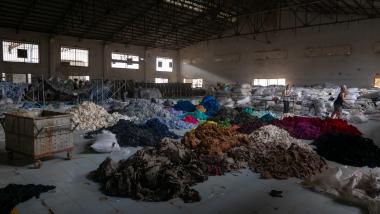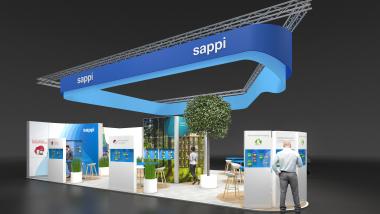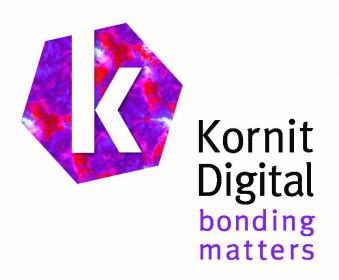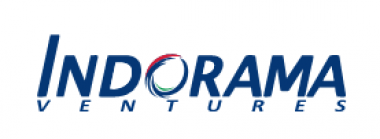McKinsey Studie: Aus 20% des Textilabfalls könnte neue Kleidung werden
- Weniger als 1% Textilmüll wird derzeit zu neuer Kleidung recycelt
- 7,5 Millionen Tonnen Textilmüll fallen jährlich in Europa an
- Nur 30-35% des Textilmülls werden getrennt gesammelt
- Kreislaufwirtschaft für Textilien könnte 2030 15.000 neue Jobs in Europa schaffen und 6-8 Milliarden Euro Marktgröße erreichen
- 6-7 Milliarden Euro an Anstoß-Investitionen bis 2030 nötig
Mehr als 15 Kilogramm Textilmüll produziert jeder Mensch in Europa im Durchschnitt pro Jahr, 2030 könnten es bereits über 20 Kilogramm pro Kopf sein. Der größte Anteil (85%) des Abfalls wird durch die privaten Haushalte verursacht: aus ihrer Kleidung und Heimtextilien. Weniger als 1% dieses Mülls wird derzeit in der EU-27 und der Schweiz zu neuen Textilprodukten recycelt. Mehr als 65% landen ohne Umwege direkt in der Müllverbrennung oder auf der Mülldeponie.
„Dabei könnten, wenn das volle technische Recyclingpotenzial genutzt und mehr Textilien gesammelt würden, bereits im Jahr 2030 zwischen 18 und 26 Prozent des Textilmülls für die Herstellung von neuen Kleidungsstücken wiederverwertet werden“, sagt Karl-Hendrik Magnus, Senior Partner und Leiter der Modeindustrieberatung bei McKinsey in Deutschland. „Ein skaliertes Textilrecycling würde nicht nur vier Millionen Tonnen CO2 einsparen, sondern auch einen profitablen Wirtschaftszweig mit 15.000 Jobs in Europa schaffen.“ Das sind Ergebnisse der Studie „Scaling textile recycling in Europe – turning waste into value“ von McKinsey & Company, für die Szenarien berechnet wurden, wie sich das Textilmüllvolumen sowie Sammel- und Recyclingraten bis 2030 entwickeln können.
Höhere Sammelrate von Kleidung entscheidend für mehr Recycling
Derzeit wird etwa ein Drittel der benutzten Kleidung gesammelt und wiederverwendet: entweder als Second-Hand-Mode, als grob recyceltes Textilprodukt wie Lappen und weniger als 1% als recycelte Textilfasern für neue Mode. Diese Sammelrate könnte bis 2030 auf 50-80% gesteigert werden. Entsprechend könnte auch die Kreislaufwirtschaft, die aus Textilabfall neue Fasern für Mode produziert, auf 18-26% skaliert werden. Heute ist es weniger als 1%. „Dieses so genannte Fiber-to-fiber-Recycling, bei dem aus Textilfasern neue Fasern für Mode hergestellt werden, stellt die nachhaltigste Möglichkeit dar, um aus Müll etwas Neues mit Wert zu generieren“, erklärt Jonatan Janmark, Co-Autor der Studie und Partner im Stockholmer Büro von McKinsey. Gleichzeitig bietet diese Kreislaufwirtschaft enormes finanzielles Potenzial mit sechs bis acht Milliarden Euro Umsatz als Marktgröße und möglichen jährlichen Renditen von 20-25% für die Recyclingindustrie.
Möglich wird diese Entwicklung hin zur Kreislaufwirtschaft durch neue Technologien, wie mechanisches Recycling von Baumwolle, das bereits recht etabliert ist, die innovative Verarbeitung zu Viskosefasern sowie chemisches Recycling für die Wiederverwertung von Polyester, was aktuell im Teststadium ist. Allerdings steht das Sammeln und die Aufbereitung der Altbekleidung und -textilien durch fragmentierte, kleinteilige Strukturen und noch meist manuelle Arbeitsvorgänge immer noch vor großen Herausforderungen. Kleidungsabfälle müssen nach Qualitätskriterien sortiert, Knöpfe und Reißverschlüsse entfernt und Faserzusammensetzungen eindeutig identifiziert werden. Viele Produkte aus Mischfasern stellen noch ein ungelöstes Problem für Fiber-to-fiber-Recycling dar.
Investitionen für Skalierung nötig
Um das volle Potenzial des Textilrecyclings nutzen zu können, werden insgesamt etwa 6-7 Milliarden Euro an Investitionen bis 2030 benötigt, die in der gesamten Wertschöpfungskette wie beim Sammeln, Sortieren und dem Aufbau von Recyclingfabriken gebraucht werden. „Die Investition ins Fiber-to-fiber-Recycling lohnt sich nicht nur aus Nachhaltigkeitsgründen. Es können beim Recycling neue Rohmaterialien entstehen, die mehr Modeproduktion in Europa ermöglichen würden. Dadurch könnte diese Recyclingindustrie sogar noch mehr Wert generieren“, sagt Jonatan Janmark.
McKinsey






























